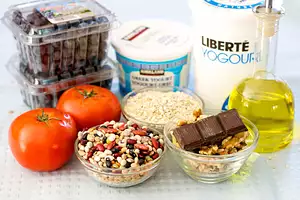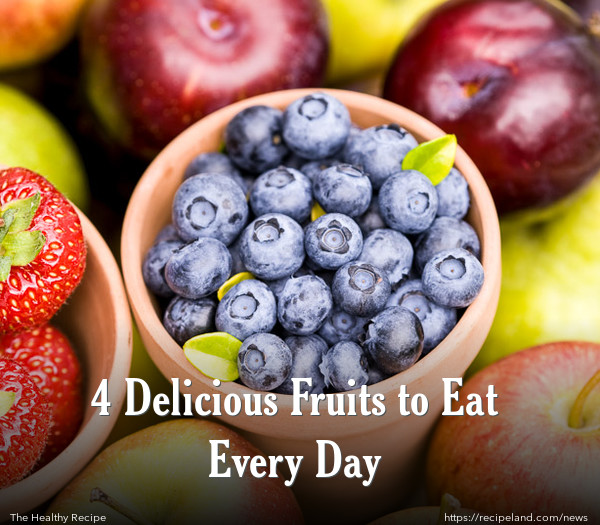As we age, the pounds can slowly creep up on us and add up. Extra pounds can lead to increased risk for diabetes, cognitive decline, cardiovascular disease, and many types of cancer. But, there is some good news. The phytonutrients that are found in certain fruits may actually help to slow the weight gain, according to a recent study published in the BMJ.
A group of researchers from Harvard University followed the weight patterns for nearly 125,000 people over the course of 24 years. The results of the study showed that those participants who consumed more flavonoids, which are certain antioxidants that are prevalent in fruits, gained the least amount of weight, and even shed a few pounds in many cases.
Three specific flavonoids, anthocyanins, flavonoid polymers, and flavonols, showed the best results over time. The group of participants who ate the most of these ate fewer overall calories and burned more energy—the ideal equation for weight loss.
Monica Bertois, Ph.D., a researcher in the department of nutrition at the Harvard T.H. Chan School of Public Health, stated, “This shows that simple changes like just adding a few handfuls of berries to your day could have a big impact on your overall health.”
Bertoia added, “We found that increased eating of all fruits was associated with less weight gain. But that’s eating whole fruit. People who increased their fruit juice intake gained more weight, probably because juices have so much added sugar.”
Here are 4 different fruits that you should be eating every day to get the flavonoids that you need:
1. Apples
These juicy treats contain high amounts of flavonoid polymers, which are one of the best ways to control your weight. America’s second favourite fruit, topped only by bananas, contains enzymes that inhibit the break down of simple sugars, which leads to helping your body flush more of the sugar out, instead of storing it as fat. The pectin in apples, which is a form of fibre, combines with the flavonoids to help reduce the amount of fat that is able to circulate in your blood. The apples that contain the most flavonoid polymers are Fuji, Red Delicious, and Galas, with Empire varieties containing the lowest amounts.
2. Pears
Pears contain pectin, like apples. They also contain high amounts of flavonols and flavan-3-ols, which are flavonoids that are especially helpful for controlling weight gain and reducing the risk of type 2 diabetes. Fresh pears may be even more effective than berries for helping with weight loss, because one pear provides nearly ¼ of your daily fibre requirements, and this helps your good gut bacteria flourish. Bertoia states, “Healthy gut bacteria help the body absorb and digest flavonoids.”
3. Blueberries
The dark blue colour of blueberries comes from high levels of the flavonoid known as anthocyanin, which is a powerful antioxidant that helps reduce the risk of cancer, heart disease, and other inflammatory conditions. Bertoia explains, “Just a small increase in anthocyanin is correlated to improved weight maintenance. So if you eat a full serving—a half cup—you’re getting hundreds of milligrams of anthocyanin.” Unexpectedly, frozen blueberries tend to have the highest concentration of anthocyanin.
4. Strawberries
Strawberries contain plenty of antioxidants, like anthocyanins (not quite as much as blueberries), as well as flavonols. Studies have shown that only a few ounces of strawberries per day can help to reduce inflammation and help to regulate blood sugar levels. A recent study published in the British Journal of Nutrition reported that consuming only a few berries before sweets can reduce the amount of sugar absorbed by the body, reducing the amount that is added to your caloric load. Another study showed promising initial results by reversing type 2 diabetes in rats as a result of feeding them strawberries.
Adding these four fruits to your diet on a regular basis can help boost your intake of antioxidants and reduce your risk of many diseases!










Comments